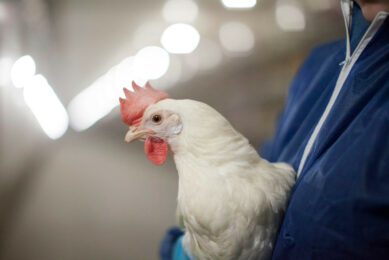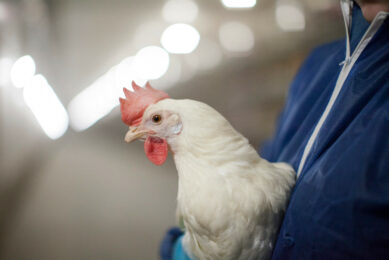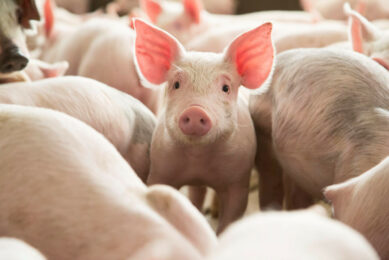Sustainability discussion goes on
Being sustainable in intensive livestock and agricultural production systems together with the constant pressure of keeping prices down, is that possible? Industry experts and politicians don’t even argue whether it is feasible and when it should be implemented; we simply have to, now!
The theme of the 2008 Alltech International Animal Nutrition and Health symposium was “Are we the greenest revolution?” Different standpoints of the theme ‘green’ were discussed and ranged from measures such as feeding more natural ingredients to reduce methane emissions, increase bioavailability of minerals and use more alternative ingredients and cellulose material for animals. This year, the organisers took the sustainability principle as its main them, a theme close to the previous edition – “thinking and acting green”.
Three main goals
But what does implementing sustainability in agriculture mean and entail? Sustainable agriculture integrates three main goals; environmental health, economic profitability, and social and economic equity. A variety of philosophies, policies and practices have contributed to these goals. People in many different capacities, from farmers to consumers, have shared this vision and contributed to it. In short we can come to the following criteria when we talk about a sustainable agriculture: It should satisfy human food and fibre needs, enhance environmental quality and the natural resource base upon which the agricultural economy depends, make the most efficient use of non-renewable resources and on-farm resources and integrate, where appropriate, natural biological cycles and controls, sustain the economic viability of farm operations and enhance the quality of life for farmers and society as a whole. This is quite something to consider and at the same time make sure that money is being made. Pearse Lyons, founder and president of Alltech mentioned in the opening session of the symposium that these current times are not for waiting and standing still. “We have to act now and even when costs are an issue, we have to invest in the future and primarily in sustainable options for feed and food supplies,” Lyons addressed. He further pointed out four solutions that need to be kept in mind while working on the sustainability issue: Focus on new resources, focus on education, innovate and overcome cultural changes. Below we review them shortly.
New resources
To reduce the pressure of being dependent on currently used raw materials for animal diets, scientist are constantly looking for new ingredients or ways to process non-digestible material to valuable ingredients.
The use of by-products from the bio energy business, such as Dried Distillers Grains with Solubles (DDGS) is rapidly growing. However, the quality of these ‘new’ products still varies considerably. This automatically means that feeding these products is not always efficient. Fermentation techniques and improved laboratory techniques increase the nutritional knowledge about these products to get more out of them.
Education
It all starts with the youngsters at college and universities. By implementing and stimulating sustainable product development at Agricultural universities, students are triggered to learn more about the sustainability issue and actually gain knowledge to best implement this in practice.
Innovation
In times of crisis, we have a big opportunity to stand apart from our peers, to be better connected to the market, even if it’s in turmoil. Times of crisis are ideal for innovation. Companies should continue to buy technology instead of hiring more people. In this way they can automate work, and find answers and opportunities with technology. In terms of animal nutrition, innovation is even more triggered to find products that do more for less money. This may include increasing the bioavailability of existing products or find a good combination of ingredients to form one single product.
Overcome cultural changes
Pressures on organisations to improve their environmental performance and look towards ‘corporate sustainability’ (Tickell, 1999) are intensifying. Some forward thinking organisations and governments have embraced the symbiosis between good corporate governance and sound business strategy. Other organisations have yet to be convinced of the need and benefits and have yet to fall into line. Major food and feed companies have power and can strengthen one another by working on sustainability as a team. For example, Danisco, Bunge, Nestlé, Green Mountain Coffee Roasters and Tyson Foods last year signed a green agreement that aims to “enable companies and stakeholders to better measure and communicate sustainability progress.” The group says consumers are demanding to be provided with meaningful information about how foods and beverages are produced, and producers need to respond to those demands. Cultural changes between companies should be thrown overboard as sustainability is a global issue.
Conclusion
Considerable discussion and debate have arisen about sustainability. The temptation to oversimplify sustainability and present it as a single issue can be, at times, overwhelming. Some have contended that the term “sustainability” is worthless, has no practical value and should be rejected altogether.
However, sustainability is a complex idea and an abstract concept that provides a framework for inter-disciplinary dialogue, interaction and research. Usually, solutions require multiple inputs and diverse perspectives. Of course, every small step counts and farmers need to choose for sustainability measures that suit their management style, country and farm type.
Lyons wrapped up the symposium with the following words: “Crisis brings out character. Character will carry us forward. Crisis brings out the best in people.” Let’s hope it’s true.











